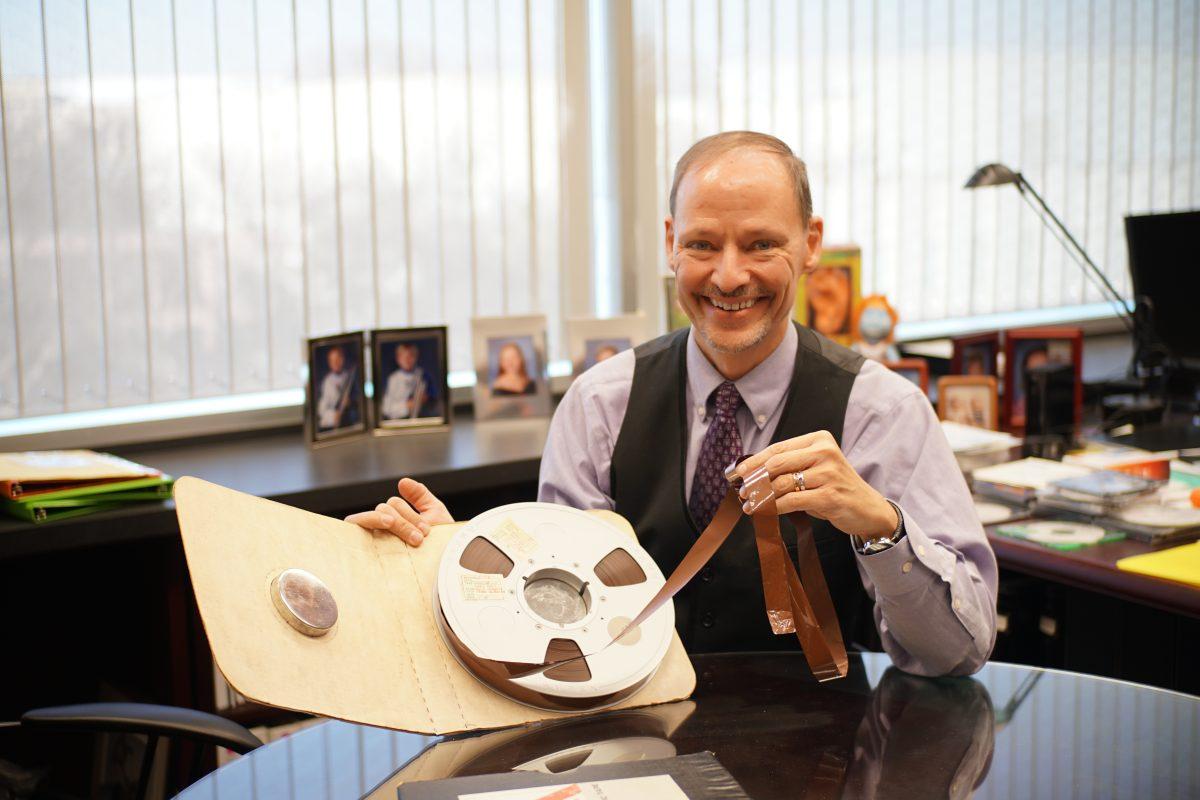Nearly 50 years after the Apollo space missions, UTD researchers are digitizing audio recording from the Apollo and Gemini missions.
Professor John Hansen, along with 15 other students and research faculty, began a project in 2012 to observe group dynamics by studying the Apollo 11 mission. After NASA provided access to audio tapes, they found that the tens of thousands of hours of audio were still on analog tapes, and the team undertook an operation to preserve these records.
“We’d expected NASA had already digitized this stuff and they’d give us the data,” Hansen said. “Instead, they pointed us to the machine and said, ‘There’s the machine and the tapes. Do what you need to do.’”
With the capability to read only one tape at a time, the SoundScriber technology NASA provided would’ve taken over 170 years to digitize the tapes. In response to this obstacle, the UTD team designed and installed technology that can read a few dozen tracks at once.
Hansen and his team digitized 11,000 hours of transcription from Apollo 11, and 19,000 hours in total. They designed diarization algorithms, or voice recognition operations, that recognize when speech does and does not occur, identify who’s speaking and assess whether the individual is under stress.
“Mission control must work collaboratively to make sure the mission is a success, so we’re looking at collaborative interaction and how people work together to solve problems,” Hansen said.
Although the benefits of the project affect both UTD and the world, Hansen said the two main goals are to advance speech technology and celebrate the people who support the astronauts.
“Everyone always thinks about the astronauts, and they should have enormous amounts of respect for these individuals, but not everyone can be an astronaut; the people who are behind those astronauts — mathematicians, nutritionists, physicists, psychologists — are the heroes behind the heroes,” Hansen said. “This huge range of people has to work collaboratively to accomplish such a feat.”
His team is not only studying NASA missions — Peer-Led Team Learning groups, or small study groups composed of students, provide another source of group dynamics. Audio technology can assess student learning and gather feedback about what methods help students best understand concepts in their PLTL circles. Hansen said keyword-spotting software could potentially allow professors to see data on which topics are discussed most often by PLTL groups, therefore encouraging a professor to spend more time on particularly difficult ideas during class.
The ripple effect of this project stretches beyond the UTD campus. In 2019, NASA celebrates the 50th anniversary of the Apollo 11 moonwalk and the mission’s audio was transcribed just in time for a documentary.
“Inside mission control, there was a person with a handheld camera designated to take video without audio,” Hansen said. “The movie company creating a CNN documentary reached out to NASA, so NASA pointed them to UTD for our audio transcripts. We sent it all to them and the studio no longer has to read lips from the video, they can just match the speaker with our audio and recreate scenes.”
The future of this project still involves more preservation of audio. Hansen said next year could result in another 100,000 hours of audio from the tapes still waiting to be transcribed. He said working with enthusiastic graduate and undergraduate students in order to create tangible results was the most valuable part of the project.
“The credit goes to about 15 research faculty, Ph.D. students, master’s students, and undergraduate students who’ve worked with me over the past few years,” Hansen said.
Students on the research team designed a website combining timestamped video from Apollo missions with the uncovered audio so the general public can appreciate NASA space travel in a new way. On this site, people can see the historic visuals from the legendary Apollo 11 mission paired with Neil Armstrong’s voice, digitized and memorialized forever by UTD researchers — “One small step for man, one giant leap for mankind.”













